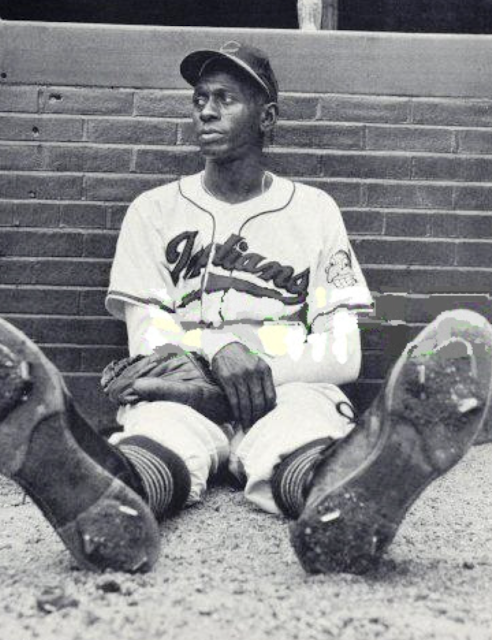Maybe you could call it an epiphanette.
I think it's a function of being old as fuck.
I can go weeks without talking to someone within fifteen years of my age.
I can go weeks without talking to someone within fifteen years of my age.
That sucks.
I remember an episode of M*A*S*H, the fairly-decent TV show that hasn't aged well. In the episode, a US-based newsreel reporter was interviewing the people of the 4077th.
When they got to Harry Morgan, who played colonel Sherman Potter, leader of the unit, they asked him what he missed most about being thousands of miles from home in Korea fighting a vicious war, Morgan said, "Mostly I miss being around people my own age."
I used to think about that a lot in my waning days at Ogilvy. My waning days at Ogilvy began on my first day at Ogilvy. In today's ad industry, people are hooked fish--they begin rotting, being disposal-phreno-genic, as soon as they are reeled in.
As an older person, your different perspectives, references, experiences and a whole lot more are essentially sent to Siberia. You, and they, are isolated and almost mocked. It's alienating, isolating and hard. So much for "inclusion." It means as much as the top-bunk at Treblinka.
The other morning I was getting ready for a client meeting.
I have about seven a week.
I have about seven a week.
Which means I have to create at least three tranches of work a week.
I figure I have about 75 major client presentations per annum. If each one of those presentations includes two manifestos and 25 ads, you can do the math. It's a lot.
And by the time Saturday morning comes along when I try to write a blogpost or two, so I'm not behind the content eight-ball when the work week begins, I feel like Ol' Man River.
I get weary
And sick of trying,
I'm tired of living
And scared of dying.
That's Jerome Kern, if I'm not mistaken. A man whose soul had grown deep like a river.
But blogpost I must.
My posts are greatest new-business-tool in the history of advertising. Why some holding company doesn't try to buy me, is a testament to just how testicularly-squeezing and ageist the ad schmindustry is.
Anyway, back to the epiphanette.
I was thinking about my daughters as I so often do. H is 32, a marine scientist, and helps run the world's leading institute of Marine Science. S is 36, a clinical psychologist, and helps run one of the world's leading clinics for kids with ADHD. Touch wood, they're home-owners, and happyish. But like me, they worry.
They look at the world around them and they see the rafters burning and collapsing in the flames. We seem to be living in an ontological House of Usher.
Then it hit me.
All those articles we read and the news stories that assault us. We are living in an endless cycle of existential doom.
Existential doom sells papers.
It's "If it bleeds, it leads" on a galactic basis.
It's "If it bleeds, it leads" on a galactic basis.
The epiphany is that every moment believes the moment we are currently in is the most perilous moment of all time. Nobody has ever woken up in the morning, kissed their oatmeal and eaten their spouse, and said "I live in the golden-age of happiness."
Today we seem to be faced with a pizza cut into 32 slices of variegated doom. Climate crisis. Fascism (trump). Income inequality. Crime. The beaten goes on.
We look back to the 80s, say, as some benign, almost Leave-it-to-Beaver-like warm-muffin of life. Naw.
I remember one morning in the early Reagan years when the great Alzheimer's president himself was rattling nuclear sabers at the Soviet Union. A disarmament group had painted ash-colored silhouettes all over my subway stop on Broadway and 110th Street. Those were to indicate vaporized bodies. Then the train came. Covered in graffiti (not street art) and crack vials. And people dying of AIDS, with no respite. And so it goes.
That was my Golden Age, the one we look at nostalgically.
I get a lot of calls from friends, near friends and non-friends in the industry. They're fed up, used up or looking to get up-and-out.
"How do I do it, George?" they plead.
"How do I do it, George?" they plead.
Fifty pounds and fifty years ago, I was a decent long-distance runner. I'm no Colin Smith, the runner in the Alan Sillitoe book, but I ran a dozen marathons in my time--most in the low threes.
I get a lot of calls from friends, near friends and non-friends lacing up their $180 running shoes. They're achey. They're breaky. They're god-foresakey.
I have the same advice for all of them that I have for all of humanity every day until Faulkner's "last ding-dong of doom."
One foot. Another foot. One foot. Another foot. One foot. Another foot.
"Don't look back," as Satchel Paige said. "Someone might be gaining on you." Don't look left. Don't look right. Don't be distracted by the chips on your shoulder. Don't think about the bruises and the blood and the bowels of life.
One foot. Another foot. One foot. Another foot. One foot. Another foot.
Happy Monday.



No comments:
Post a Comment